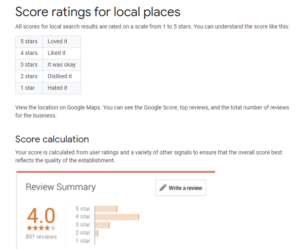Are you protecting your reputation?
“If you don’t manage your reputation, someone else will.”
Can a reputation – brand, corporate, personal – actually be managed and positively sculpted? Absolutely – especially when a proactive strategic initiative is based on fact.

So then, what is reputation management? It’s a critical strategic function that:
- Protects and fashions brands through a variety of strategic action
- Tracks what people think about your brand, company, or organization (or you personally)
- Tracks what people say about your brand or company
- Tracks what artificial intelligence algorithms may be portraying about your company
- Recommends courses of action to positively influence and shape reputation perceptions (including dealing with negative perceptions and heightening positive ones)
- Proactively takes strategically targeted action to boost positive (and accurate) information and perceptions, as well as action to correct errors or acknowledge situations where performance could have been improved (positive mea culpa)
A major part of reputation management occurs online, as social media and internet-based news can instantly impact a company’s reputation (in good or bad ways).
Sales and marketing impact
Reputation management represents a critical part of sales and marketing, as if a company has a “bad” reputation (e.g. one “star” out of a possible “five”) research has shown that has a definite unhappy impact on possible sales and positioning.
A brand is much more than a logo
A company’s brand essentially exists between one’s ears and represents a complex conglomeration of perceptions, ideas, experiences, and interactions (good and bad). The visual elements of a logo or brand design reflect and influence the brand, but at the end of the day, prospects, influencers, and other reputation-critical players all make up their own brand and reputation perceptions.
In the upheaval year of 2020, reputation management has become even more critically important. Brand attacks and negative perceptions can occur in seconds online, leaving the unprepared open to major – even catastrophic – losses.
The critical nature of and need for positive reputation management in 2020 cannot be underestimated. Mental strains and stresses resulting from COVID-19 lockdowns and economic turbulence have left many with little mental or emotional reserves. People are quick to jump to judgments, which once made can be very difficult to change (particularly when negative in nature).
Customers and prospects react to reputation issues
How important is reputation management in a stressed-out, time-strapped, intolerant environment? Research shows that some 80% of online consumers will reconsider or actually reverse a purchase decision or commitment once they learn of a negative reputation issue online (whether it’s true or not).
Word of Mouth receives considerable attention because of its power to influence. Friends and family (or trusted resources) wield terrific power on reputation perceptions. Online word of mouth travels at the speed of light, demolishing or lifting reputations within seconds. Where humans were once primarily responsible for delivering word of mouth, today search engines dominate in that role.
 You’ve probably read Google Reviews yourself and likely left a star rating. Hospitals and healthcare operations know the value of star ratings (including how Medicare reimbursement is directly affected), and they spend vast sums of funding and time to influence those star ratings (otherwise they lose patients and even staff). Patients (and prospective professional staff) regularly visit sites like Healthgrades.
You’ve probably read Google Reviews yourself and likely left a star rating. Hospitals and healthcare operations know the value of star ratings (including how Medicare reimbursement is directly affected), and they spend vast sums of funding and time to influence those star ratings (otherwise they lose patients and even staff). Patients (and prospective professional staff) regularly visit sites like Healthgrades.
Key point: nearly 90% of online visitors trust online reviews as if they were personal recommendations from a friend or key influencer.
Many organizations suffer from unchecked and unchallenged narratives on Wikipedia or have a neglected bad review of a disgruntled employee on Glassdoor.
The Google Knowledge Panel for your business – which directly influences 20% and more of people seeking information about your company – is largely comprised of online information available from a variety of sources about your company. Surprisingly, many companies (especially smaller companies) never claim their Google Knowledge Panel (or Google My Business account), leaving AI algorithms free to assemble information about their companies in an uncontrolled and unchallenged manger.
Root cause analysis
All reputation management issues – whether generated by humans in media, speeches, presentations or face-to-face discussions, or by AI-online sources – all bear root cause analysis. If your company faces a disgruntled employee or customer, or is subject to reputation-busting allegations (from government, competitors, or others), you need to spend some time being honest and evaluating why these negative comments are appearing.
Unchallenged, online (or traditionally delivered) comments can be brand busters or at least brand bruisers.
Ready to embark on a reputation management initiative – or tune-up an existing one? Great – just remember that reputations take time to build but can be destroyed quickly. Reputation management is not a two-week review, fix and forget. It’s ongoing and sometimes takes intensive effort.
Want to know more how MEK can protect your reputation (online and traditional) and institute a proactive reputation management initiative? Contact us here.
By Michael Snyder, MEK
- 2025 – Challenges, Opportunities on Deck for Economic Development
- “How’d I do?” asked the President – a Lesson in Leadership
- Seven Qualities of Leaders That Transform
- Ten Questions to Guide Strategy Development
- I-69, Southern Indiana, and the Power of Vision
- Michael Snyder on “How’d I do?” asked the President – a Lesson in Leadership
- PETER KISSINGER on “How’d I do?” asked the President – a Lesson in Leadership
- Michael Snyder on Critical Principles of High-impact Leadership
- PETER KISSINGER on Critical Principles of High-impact Leadership
- PETER T KISSINGER on Jim Harbaugh – Secrets of a Turnaround Legend
